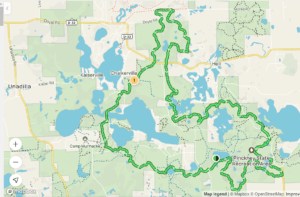
By Dr. Steven B. Silverman, MD
(Chelsea Update would like to thank Dr. Steven Silverman of the Chelsea Pain Center for the information in this story.)
Until a vaccine was introduced in the 1990s, nearly everyone got the chickenpox. And for most people, it meant they were immune and would never get chickenpox again.
Unfortunately, that’s not the end of the story for many people. If you’ve had the chickenpox, the virus is still in your body. And years later, it can strike again — this time as shingles.
What is shingles?
Shingles, also known as herpes zoster, is an extremely painful rash caused by the chickenpox virus. Not everyone who has had the chickenpox will get shingles, but factors like increasing age, stress, some illnesses, or a weakened immune system may make you more likely to get it.
The shingles rash typically appears on one side of the body in a band or stripe-like pattern. It may also occur on the face. It often looks like a cluster of blisters. The pain from shingles may be extreme, described as burning, aching, and shooting pain, which can last for two weeks or more if not properly treated. Shingles on the face can spread to the eye and, in rare cases can lead to blindness.
The excruciating pain of shingles can persist long after the rash has cleared, sometimes for months or years. Known as post herpetic neuralgia, this is perhaps the most devastating effect of this disease.
What you should do:
First and foremost: if you think you have shingles, see your doctor as soon as possible. Early medical treatment gives you the best chance of a full recovery.
Nerve blocks are often an effective way to eliminate the pain of shingles, especially if given in the first two to three weeks after the rash appears. A nerve block is a minimally invasive injection of medicine that can be performed by a pain medicine specialist.
Nerve blocks can not only alleviate the immediate pain, but it can speed the healing of the rash and prevent the ongoing pain of post herpetic neuralgia.
Ask about the vaccine.
All adults age 60 or older should ask their doctor about the shingles vaccine. One dose of this vaccine can help you avoid the pain of shingles and its lasting complications. It’s the single best way to help prevent this disease.
Take action against shingles.
Don’t assume you must live with the pain of shingles. See your doctor as soon as possible if you have symptoms of shingles, and ask about nerve blocks or other treatment options that may work for you. The earlier you get treated, the better your chances of success.














